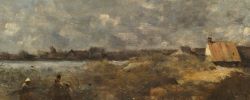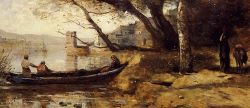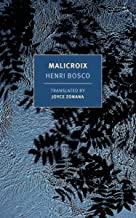Malicroix by Henri Bosco
Drawn to an isolated property he has inherited from a mysterious relative, Martial Mégremut sets off into the center of his self, walking through darkness, traveling toward an unknown, as in a dream quest: this is the basic form of Henri Bosco’s novel Malicroix. First published in 1948, it is considered one of Bosco’s finest works, and is now available in English for the first time in an edition translated by Joyce Zonana for New York Review Books.
Bosco was a French writer noted for a distinctive style that creates an enchanted sense of presence and place. He was nominated for the Nobel Prize for Literature four times and received several of his country’s most prestigious writing awards. Bosco was born and grew up in the Provence region, famous for herbs, old vines and vacationing commentators — and known to have inspired numerous writers. Peter Mayle’s hugely successful A Year in Provence (and the series that followed it) is only one example. The region is endowed with an earthy relationship to its physical landscape and a way of life that is spiritually enmeshed in interactions with nature. This simple, grounded regional character is a major component of Bosco’s Malicroix.

It is a novel that takes place within a wild landscape — an island on the river Rhône sometime in the early 19th century. Martial, our narrator, a young man of a well-to-do family, has inherited the remote island and decides — against the common-sense advice of his family — to go live there alone (as his late great-uncle Cornélius Malicroix has dictated in his will) save for a dog and the introverted Balandran, a shepherd on the island. Martial seems drawn there by ancestral voices beyond his own reason, yet apprehended somehow within a deeper understanding that he seems to receive from the surrounding landscape.
The psychology of isolation, described with keenly observed interiority, fever dreams, and exalted, nearly animistic descriptions of nature are the highlights of these pages. The prose reveals the spiritual presence of common objects and natural processes. Intensely simple occurrences, a sunrise or a rainstorm, are evoked in impressionistic terms that make them “at once commonplace and uncanny.” When the sun sets, it doesn’t just get dark, but rather “the ingathering of darkness created an apparently impenetrable wall of shadow.”

Bosco’s mythological gravitas makes these contemplations soulful and hypnotic: “I see in rivers a half-visible world of fleeting forms that tempt and sometimes trap the heedless soul. Rivers and streams are sinuous, insinuating creatures — menacing even. Not one of them has sure banks. They all weaken with silt the treacherous mud of their alluvial deposits. Nothing is precise on that moist frontier where earth and water mingle. Far from shore, infiltrations secretly undermine the soil and circulate subterraneously.”
Gothic elements are also employed to eerie effect — there is a candelabra with legendary supernatural powers, it almost never stops raining, the action happens very often at night, and French peasantry provide mute profundity. Balandran the “scrupulous, energetic, taciturn” shepherd and handyman, mystifies the narrator with his enigmatic presence and reticence: “You spoke to him of yourself, of him, of the very place where you found yourself, and he responded from elsewhere. His responses came from another world, prior to you, apart.”
The translation by Zonana has both intensity and ease, giving a natural rhythm to Bosco’s phenomenological effusions that seems vivid and apt. The distinctive power of the novel shines through gorgeously. There is an almost mythical family curse at work on our narrator, but the real thrill of this book is the poetic power of the writer. As the French philosopher Gaston Bachelard described it in The Poetics of Space, it is a “vast prose poem” in which “the real drama … is an ordeal by solitude.”





